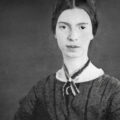Rekindlings of Psyche: Ellen Bryant Voigt’s Collected Poems

Ellen Bryant Voigt is one of the most deservedly revered figures in contemporary American poetry, a former Chancellor of the Academy of American Poets, a MacArthur Fellow, among many honors—not to mention the enduring contribution of creating the low-residency model of MFA in creative writing.
However, what is truly remarkable about the 460 pages of her Collected Poems is how much they have to offer readers for whom those achievements hold but passing interest, who pick up books of poetry to feel and think life in new ways through poets’ considered, compelling perspectives. A considerable achievement of this life’s work is how consistently its pieces accomplish such rekindlings of psyche without overt recourse to their maker’s redoubtable erudition. This volume spans broad terrains of form and subject matter: personal lyrics, longer meditations, a book-length sonnet sequence that treats the history of a World War I pandemic through multiple perspectives, translations, responses to the natural world, to family and regional history, musical and poetic ancestors. Yet, in these varied explorations the poems consistently speak to themes such as familial and personal resilience, the wisdom and danger of nature, death and fostering life’s continuation.
“After Keats” captures several complexities that run through much of Voigt’s work. The poem begins with an apparent separation between the speaker and truth: “If truth is not a thing apart from me, / then I don’t want it.” At first, this sounds like setting a standard for objective or impersonal truth at all costs, but when we think further, truth as “apart from me” is also necessary in order to strive for it, to “want” it at all. Even this can sound idealistic until we read the second couplet of the poem:
– Have you always told the truth? I have always loved the truth.
The couplets, presented as discrete sections, create separation and interplay. The section quoted above is itself a dialogue, either literal conversation or internal self-reflection. The nuance of this couplet is the way love complicates the speaker’s seeking of truth. First, the speaker is asked to respond to a question: The form of the couplet is based on human interaction, pointing to the fact that transcendent ideas are only relevant in our lives when we discuss them with other people. Second, the answer to the question is not primarily about truth, but love. Thinking back to the first couplet with this in mind, we see that truth needs to be “apart from” the speaker, not merely in an abstract sense, but as an aspect of the relationships through which we learn.
Dialogue in such relationships is also a model of meditative thought, so even individual truth-seeking endeavors owe a debt to them and will rely on them to share their discoveries. In fact, the speaker relies on the reader’s willingness to consider such intricacies over time in order to think through the poem, moving back and forth dialogically between the two sections to do so. We are also reminded, in the speaker’s clever sidestep of the actual question posed, that these essential relationships are maintained, in part, by telling the whole truth, but telling it slant.
Many of Voigt’s family poems are fine examples of working with various layers of truth, often beginning with the interpersonal and empathetic. “The Wish” tells the truth about a conversation with the speaker’s young daughter in which a loving truth was preferred:
“All great beauties doubted their beauty,” I tell her. But why should she believe me: I am her mother, and asked repeatedly for beauty, meaning happiness.
As above, we can see two levels of truth telling. The speaker’s comments imply that both mother and daughter know that the mother has sidestepped her daughter’s concern. In doing so, the mother has pointed to a deeper psychological truth: “great beauties” experience psychological distress too. Within the scene, the mother guides her daughter toward deeper self-worth; for the reader, the speaker reveals her own developmental obsessions and the illusions of the happiness she thought they would bring. The interplay between the audiences completes the poem. Her admission of a similar wish honors the daughter’s distress while permitting the reader to empathize all the more deeply—and perhaps to let go of similar illusions.
A longer mediation, “The Art of Distance,” explores such evolving understandings of family members. The speaker characterizes her father’s distancing strategy as “deflecting sorrow and terror / into a steady fierceness, and aiming that”. Deepening through self-reflection, she develops an objective value of distancing itself:
And though my father claimed I never listen, of course I do: after all, who else but the blind will lead the blind? And the years bring their own correction: to see a thing one has to push it away.
The stoicism here serves as a protective counterbalance to love, preserving the integrity of one’s own perspective. At the same time, the assertion of her own listening to her father feels like the kind of well-worn story families rehearse in implicit affirmation of mutual acceptance amid differences of temperament. In this recognizable quality, we feel the also unspoken pain of her loss, all the more in her use of present tense to describe her listening. The deeper listening to our forebears teaches us distance to “see a thing” more truly; we learn this distance most inextricably through loss.
A similarly clear-eyed view of individual limitations appears in “Geese”: “there is no cure for temperament it’s how / we recognize ourselves but sometimes within it / a narrowing imprisons or is opened” (444). Many such openings are provided to this poet by reflecting on human psychology in terms of its similarities with and differences from nature. The recurrent figure of “the cat, who shuttles easily between two worlds” (116), is a fitting guide, given its ability to move unimpeded through the boundary between home and wild, conscious thought and instinct.
In “Jug Brook,” considering the cat releases insight into the speaker’s forebodings of death:
On the porch the weather shifts, the cat dispatches another expendable animal from the field. Soon she will go inside to cull her litter, addressing each with a diagnostic tongue. Have I learned nothing? God, into whose deep pocket our cries are swept, it is you I look for in the slate face of the water.
In thinking about the cat’s instinctive interactions with life and death, the speaker, confronted with fear, catches herself wanting to call out to a greater power for help. In the silence that follows, the reader is able to empathize all the more because the speaker allows herself to voice her existential helplessness. The god of the poem is present in her willingness to acknowledge her own fear in order to remain whole, to remain in true conversation with herself. Some refer to this practice as prayer.
Nature also has a grounding influence, the absence of which can be felt in poems like “Sleep.” The speaker, overly conscious on various levels, sneaks a rebellious cigarette:
I threw away the pack which was unwise the gods don’t notice whining they notice the brief bright flares of human will they lean from their couches yes more fear and dread for that one yes let’s turn the suffering up a notch let’s watch her strike the match I strike it now when I wake in the dark I light that little fire
Compared with the quiet god above, these characters seem downright sadistic. Consciousness, the original rebellion, must pay the Promethean price in the recurrently painful awareness of its own limitations. Here the gods are hostile to self-determination, punishing us with the awareness of our own fleeting helplessness. This poem opens a different window into the human response to mortality, one that resolutely insists, without hope of succor, on the validity of its own perspective.
These invocations of higher powers provide one context and reason for writing poems. A more realistic analogy appears in “The Farmer,” who survives hundreds of bee stings due to “the years of smaller doses—/ like minor disappointments, / instructive poison, something he could use”. “Winter Field” offers a much more immediate example of poetry as a restorative distancing, a surmountable sting:
After they’d pierced a vein and fished me up, after they’d reeled me back they packed me under blanket on top of blanket, I trembled so. The summer field, sun-fed, mutable, has its many tasks; the winter field becomes its adjective. For those hours I was some other thing, and my body, which you have long loved well did not love you.
Summer correlates with living, winter with death—but also with language, with poetry. Where the overflow of sentence boundaries in the first stanza above dramatizes the speaker’s trauma, the return to balanced sentence structure that follows portrays the mind’s wish to reassert its own control through the conceptual assertion. The final stanza apparently resolves the disagreement between these two perspectives with a third truth. The bleakly inarguable statement that the briefly dead body no longer loves implies a present, abiding affection for the beloved, which is elided into the gratitude articulated for his love of her. When the surprising newness of this expression reawakens the presence of death in the reader, their feelings for their own loved ones are called forth as well. The poem, itself a “Winter Field,” is not living love, but what remains to describe it to the living, an impossible insurrection against mortality.
Poetry, among other things, is a home for psyche after the body, similar to the metaphorical afterlife presented in “For My Father”:
If there is a life beyond the body, I think we have no use for order but are buoyed past our individuating fear, and that memory is not, as now, a footprint filling with water.
Death, like the god in “Jug Brook,” takes on a dual meaning beyond literal death to reveal a present that exists beyond the ego’s insistence on control and identity. The paradox, of course, is that one lives into and through these constructs to move beyond them into a hereafter. This volume will serve as a lasting companion to those who undertake such soul making journeys, remembering along the way deep truths we may not have returned to had these poems not prepared the silences within which we could reflect, echoes that reflect feelings deeply considered.
About Michael Collins
Michael Collins is the author of the chapbooks How to Sing when People Cut off your Head and Leave it Floating in the Water and Harbor Mandala and the full-length collections Psalmandala and Appearances, which was named one of the best indie poetry collections of 2017 by Kirkus Reviews. He teaches creative and expository writing at New York University and has taught at The Hudson Valley Writer’s Center, The Bowery Poetry Club, and several community outreach and children’s centers in Westchester. He is the Poet Laureate of Mamaroneck, NY.





